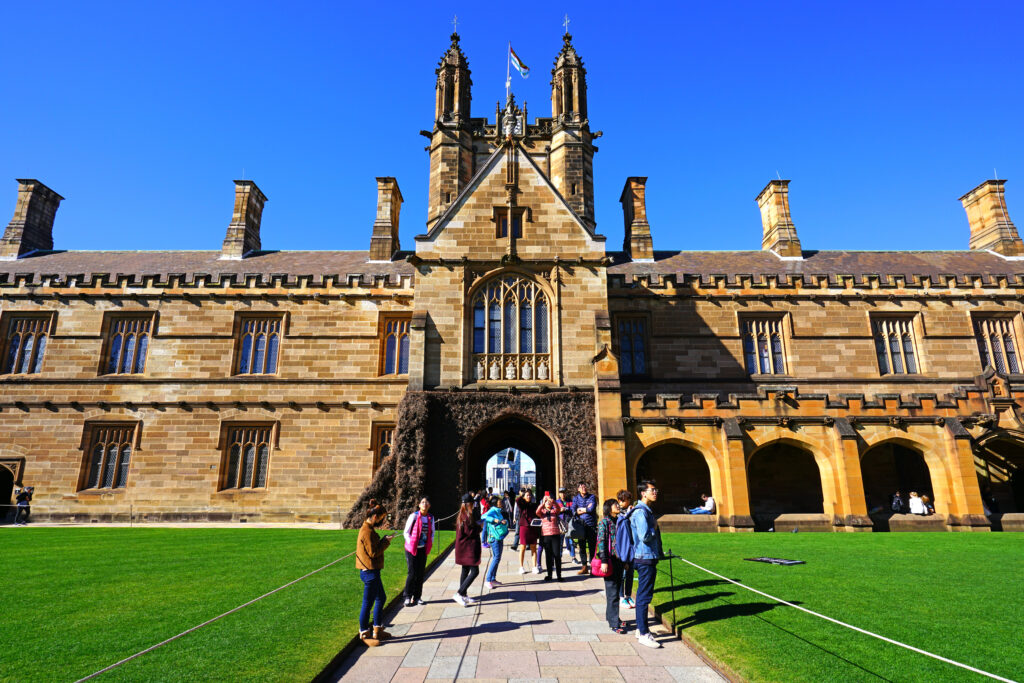There are several key tasks to complete if you want to study in Australia. Some of them – such as applying for a study visa and taking an English language test – might seem obvious, but did you know that it’s compulsory to take out health cover for the entire time you’re here?
There are a range of different requirements for Australian study that you will need to meet as a prospective international student. Let’s outline some of the key areas to pay attention to.
Check your visa conditions
Applying for an appropriate visa is an essential part of preparing to study in Australia. Specific requirements may vary, but typically include having a ‘Confirmation of Enrolment’ certificate from your institution, proving you have sufficient funds and meet character and health requirements.
To check the specific application requirements for your visa – as well as your spouse’s visa requirements in Australia (if you have one) – you can use the Department of Home Affairs’ Visa Entitlement Verification Online (VEVO) service, which allows visa holders, employers, education providers, and other organisations to check visa details and conditions.
You can also check out our breakdown of the different visas available for international students.
Take an English language test
To study in Australia, you will likely need to provide evidence of the English language requirement, either with your visa application or when applying to study at an educational institution.
What about the band score requirements to study in Australia? Well, there are many different English tests, and the score you need will depend on your visa type or program of study. Let’s use the Student visa (subclass 500) as an example. To meet the English language requirements for this visa, you must achieve a minimum score of 5.5 via the International English Language Testing System (IELTS), or equivalent.
Make sure to check the IELTS requirements – or that of whichever English test you’re taking – when researching your visa application, and also see if you are eligible for an exemption.
Meet academic requirements
Academic requirements will vary depending on your program of study. The best place to check this information is your chosen institution’s website. You could also get in touch with a campus advisor or liaison officer to talk through what you need to do.
English language skills will likely be one criterion, and some programs will require you to have studied certain prerequisite courses. Also, to start a postgraduate degree, you must hold an eligible undergraduate degree from Australia or overseas.
You might also be wondering about the accepted ‘gap’ for Australian visas – meaning, how long of a gap you are allowed to have between programs of study. For the Student visa (subclass 500), gaps must be less than two calendar months, unless the first program finishes at the end of the standard academic year and the next program commences at the beginning of the standard academic year.
Check your finances
The cost of living in Australia may differ from what you’re used to back home, and there are certain financial requirements you will have to meet when applying for a visa.
While living in Australia, it’s important to stay conscious of your expenses.
There are a range of ways to effectively manage your money and budget as an international student. Use our cost of living calculator to understand how much it would cost to lead your desired lifestyle in Australia.
Take out health insurance
It is compulsory to take out appropriate health insurance while you’re in Australia. Overseas Student Health Cover (OSHC) helps to cover the costs of medical and hospital care, ambulance cover in emergencies, and most prescription medicines.
If you are on a student visa from the United Kingdom, Sweden, the Netherlands, Belgium, Slovenia, Italy, or New Zealand, you can also apply for Medicare under your country’s Reciprocal Health Care Agreements. This coverage is in addition to OSHC.
For a list of registered health insurers who offer OSHC, check the Australian Government’s Private Health website.
Seek further information
Further details about moving to and staying in Australia are available on the Department of Home Affairs website, which outlines vital information about visa conditions, COVID-19 updates for overseas visitors, and what to do if your situation changes.





